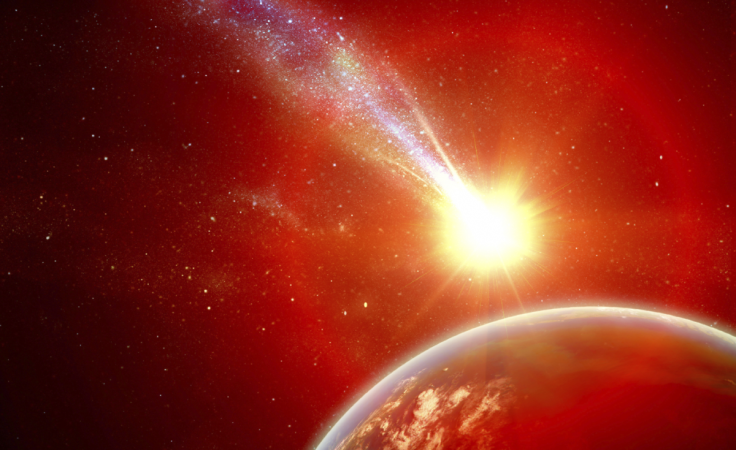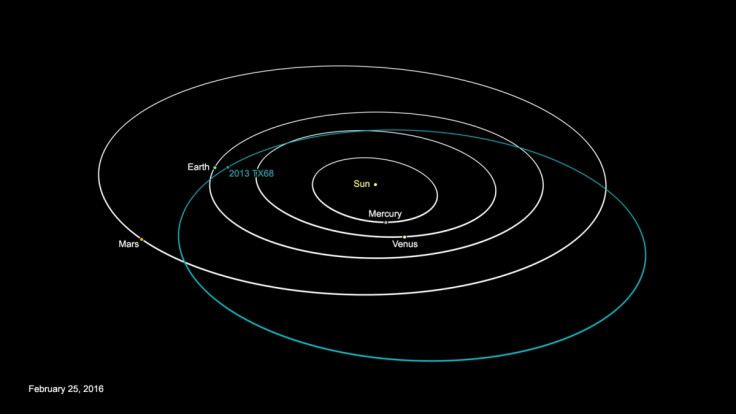Small 30m-wide asteroid called 2013 TX68 set to pass Earth on 8 March

A 30m wide asteroid is expected to pass Earth next week, say experts from Nasa. Scientists say the asteroid, known as '2013 TX68', will most likely come within three million miles of Earth, although it may pass as close as 15,000 miles away.
The exact time and date that the asteroid will pass Earth is currently unknown. Earlier predictions believed it could have been on the 5 March 2016, but this has since been slightly delayed, and the most likely date will now be the 8 March.
The 2013 TX68 is roughly a third of the size of a football pitch, and scientists say the asteroid poses no threat to Earth.
In February 2016, researchers from Nasa said that there was a one in 250 million chance that the asteroid could impact Earth in 2017. However, latest models from the Centre for Near-Earth Object Studies (CNEOS) suggest that will not happen.
"We already knew this asteroid, 2013 TX68, would safely fly past Earth in early March, but this additional data allow us to get a better handle on its orbital path," said Paul Chodas, from CNEOS. "The data indicate that this small asteroid will probably pass much farther away from Earth than previously thought."

This asteroid has passed Earth before. In October 2013, the asteroid flew past extremely quickly, and astronomers only had a window of three days to collect as much data on it as possible, before it flew out of range. Observations of the asteroid remain limited, which explains why astronomers still do not know when to expect 2013 TX68.
"There is no concern whatsoever regarding this asteroid - unless you were interested in seeing it with a telescope," said Paul Chodas, from Nasa's (CNEOS). "Prospects for observing this asteroid, which were not very good to begin with, are now even worse because the asteroid is likely to be farther away, and therefore dimmer than previously believed."
Nasa reported on the 23 February that a truck-sized meteor impacted Earth 600 miles off the coast of Rio de Janeiro. The meteor crash-landed at a speed of 41,600mph on the 6 February. Nobody was injured – and there were no eye witnesses.
© Copyright IBTimes 2025. All rights reserved.






















